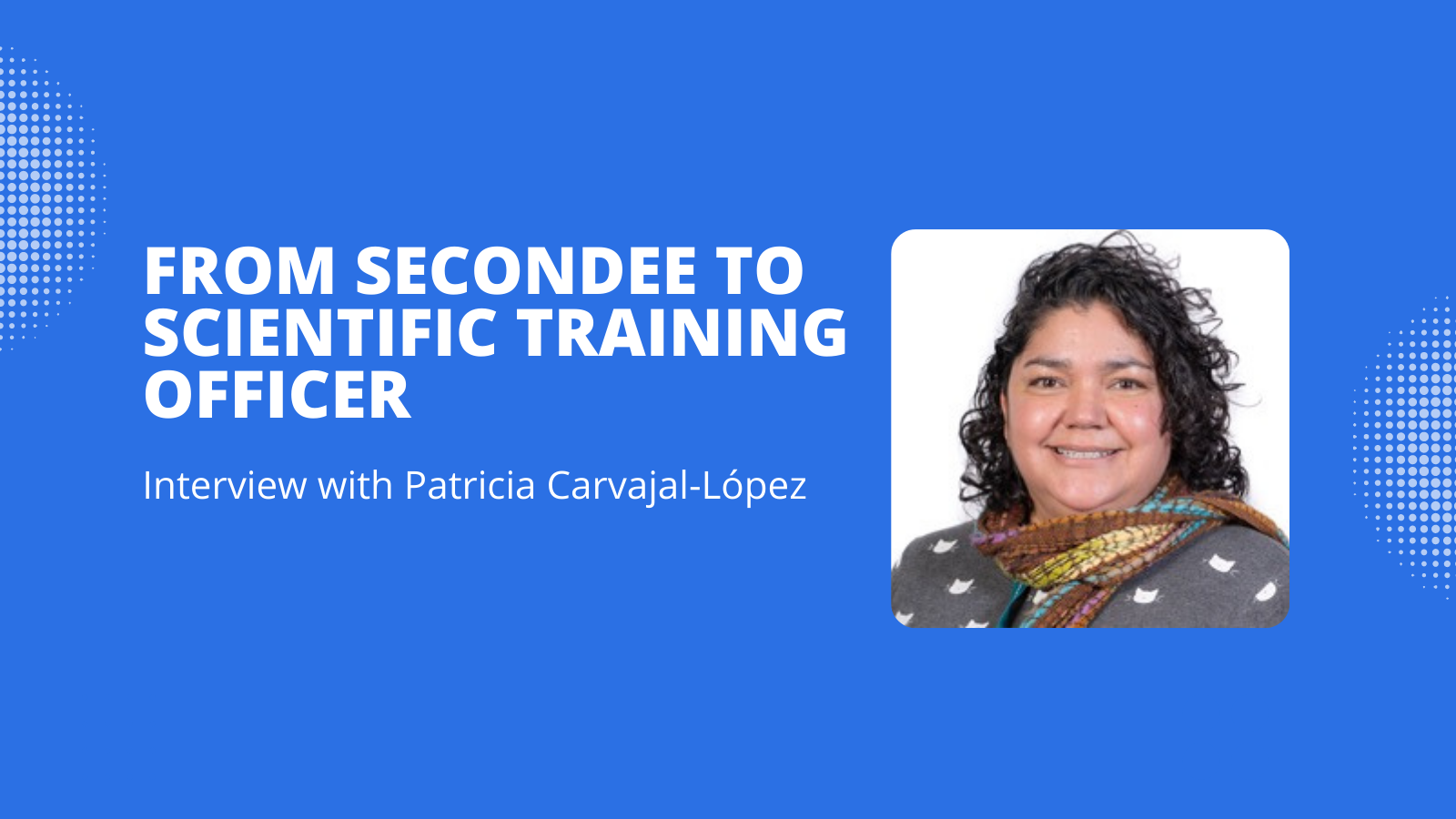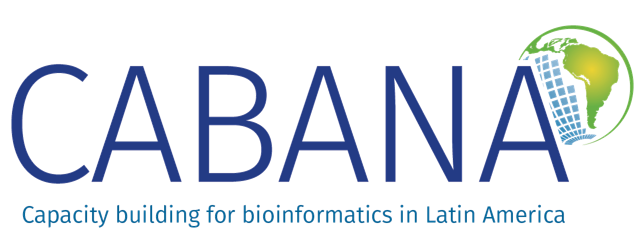
Patricia Carvajal-López joined EMBL's European Bioinformatics Institute (EMBL-EBI) in 2019 for her CABANA secondment where she worked on analysing the status of bioinformatics training in Latin America. She has now progressed to working as a Scientific Training Officer where she focuses on the delivery of training courses in life sciences. We sat down with Patricia to talk about CABANA and its impact on her journey so far.
What is your current role and how did you get here?
Currently, I am a Scientific Training Officer at EMBL's European Bioinformatics Institute (EMBL-EBI). This mainly involves the development and delivery of training courses focused on different areas within the life sciences. I began working with the EMBL-EBI training team in 2019 when I joined as a secondee for the CABANA project. Eventually, I joined this team as a Scientific Training Officer in 2021. Most of my work after graduate school had been related to scientific training, promotion of science and strengthening of communities of practice, which I greatly enjoy. These tasks are vital to my role, so I continued this same path.
What does your typical day look like?
Coffee, deskwork, lots of reading, meeting different groups/people, and when it’s time to run courses, deliver these events in coordination with our Events Organisers and System Administrators. Did I mention coffee? No seriously, strengthening scientific capacities is essential for research and academia, so my day implicates working with researchers, principal investigators and different parties committed to scientific training.
You were a secondee at CABANA. Can you take us through what you worked on during that period?
I compare my secondment to a snowball going downhill. It started as a project to analyse the status of bioinformatics training in Latin America and create a deliverable training programme in basic bioinformatics and scientific computing to life sciences at undergraduate levels. This grew to cover these two objectives plus, associating with other secondees and Latin-American researchers committed to training lecturers, delivering the Train the Trainer workshops in Spanish and Portuguese, participating in international events to promote scientific training and representation of Latin America in such forums, science advocacy for my country, getting involved in evaluating bioinformatic competency frameworks, joining the team that delivers the yearly bioinformatics education summit, and other tasks relevant to training and communities of practice in this region.
What was the impact of the secondment on your professional and personal journey?
Being an electrical engineer who eventually went into the life sciences through bioinformatics made me visualise how engineering methodologies complement biological research and how technical skills such as programming benefit analysis within these areas. This is where the CABANA secondment helped me the most. I’ve been reaching an international community to promote technical training and increase Latin-American representation in world-renowned training forums. I became part of teams that are highly enthusiastic about strengthening bioinformatics capacities, promoting networking within Latin American communities and taking actions to address problems such as language barriers in education, centralization of scientific training, among others. Without even realizing when exactly, I’ve also become an academic promoter through social networks such as Twitter and an advocate for Latin-American representation in life sciences. I believe that everyone is committed to making a good impact on their communities, and this secondment has been crucial for me to take that route.
